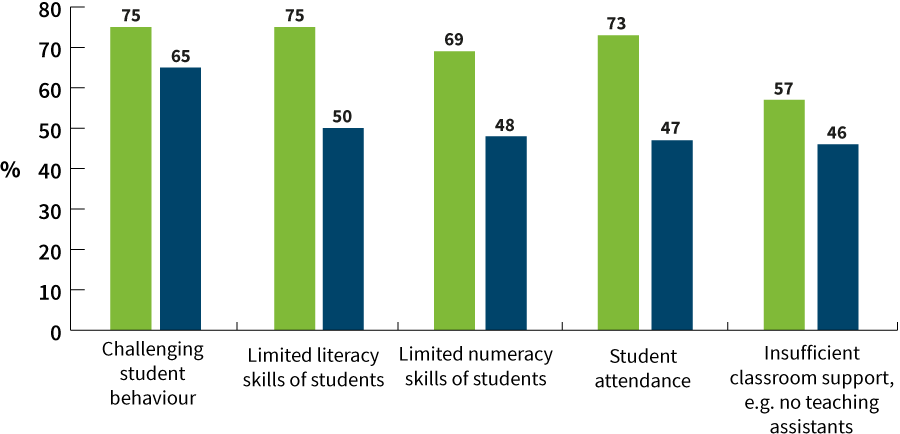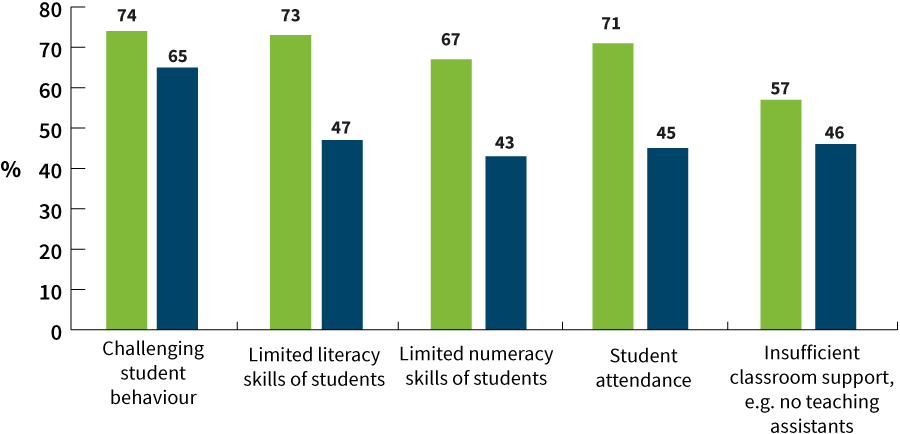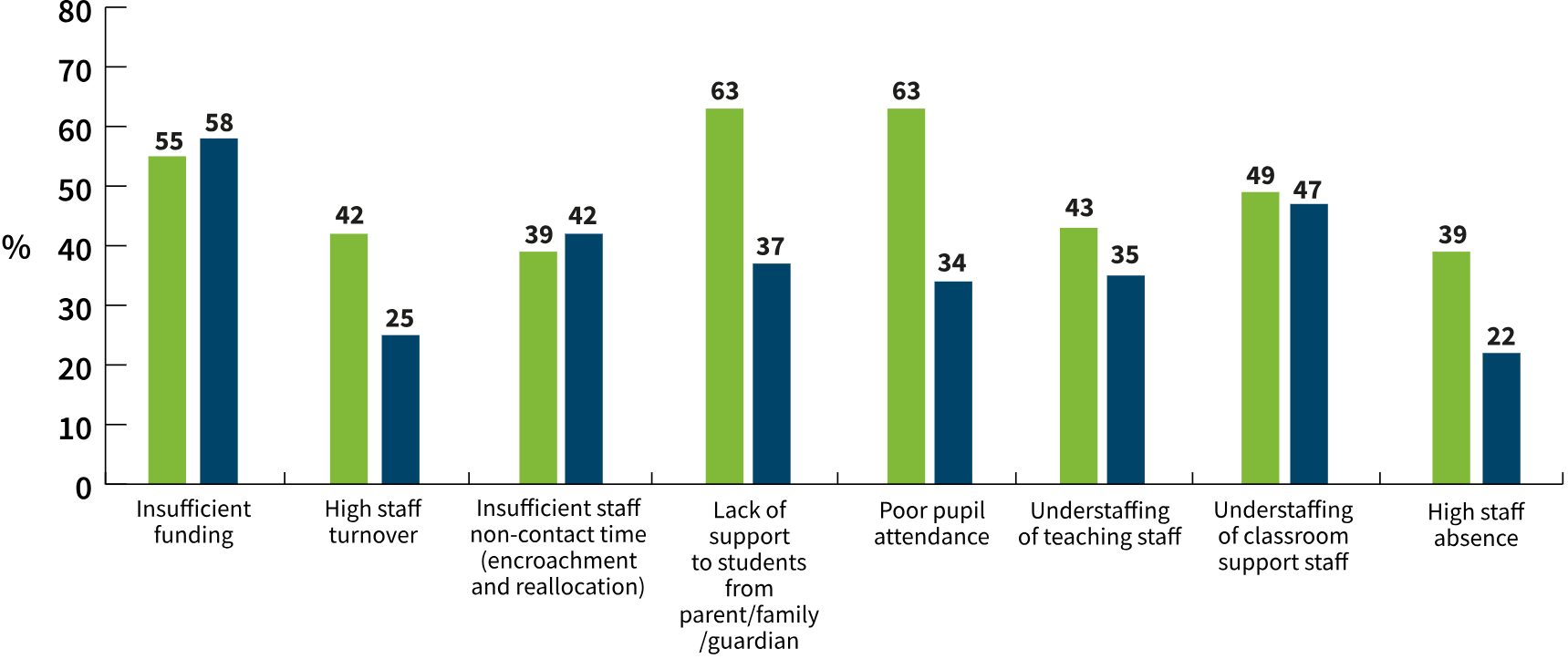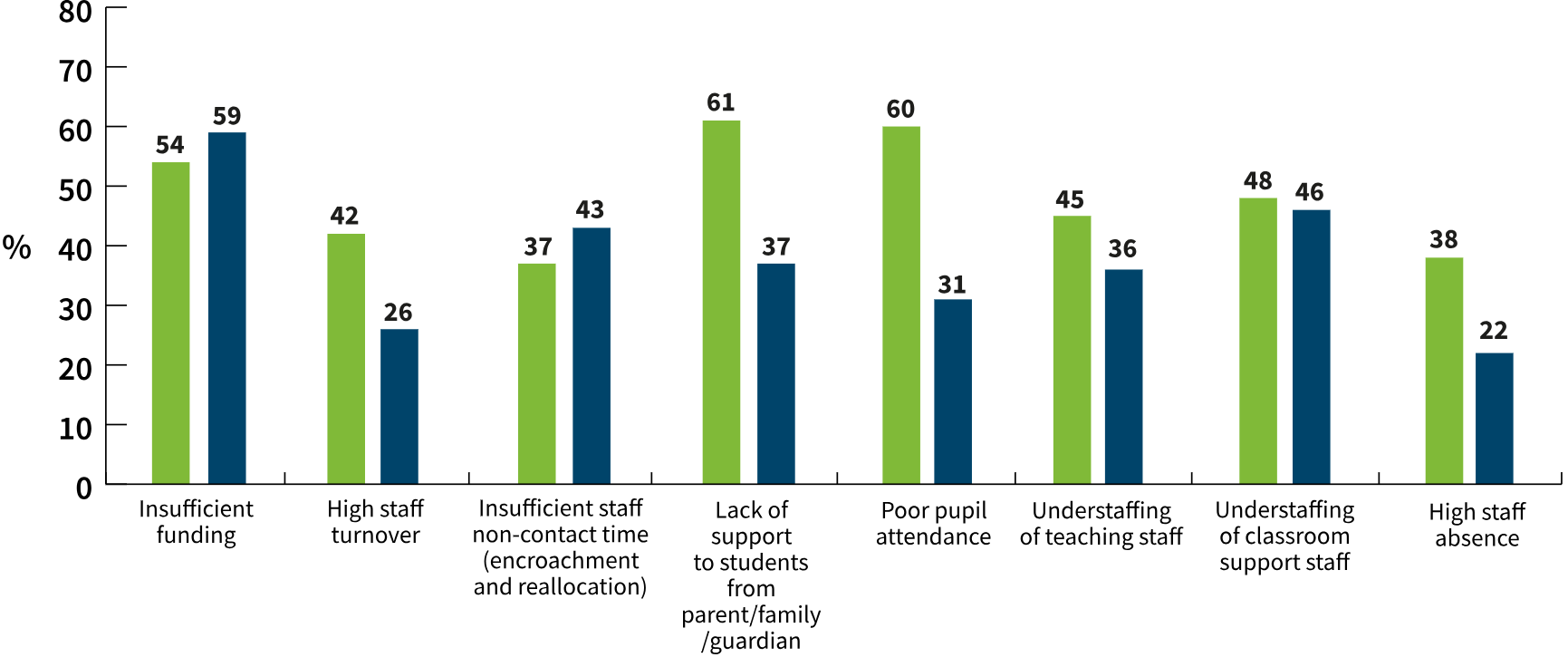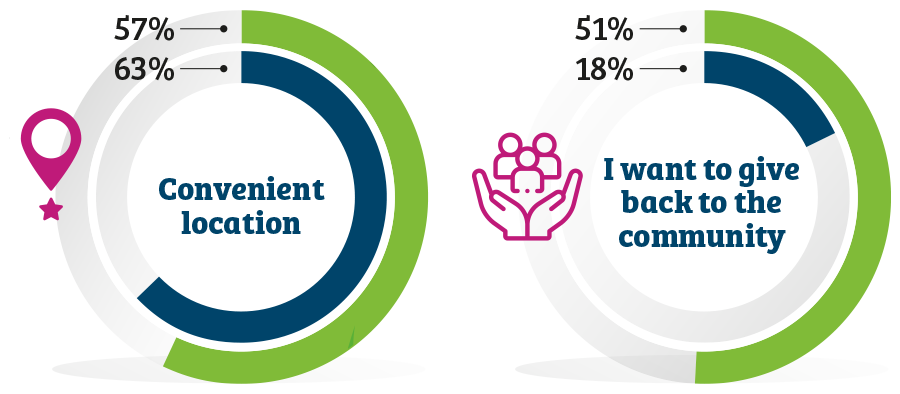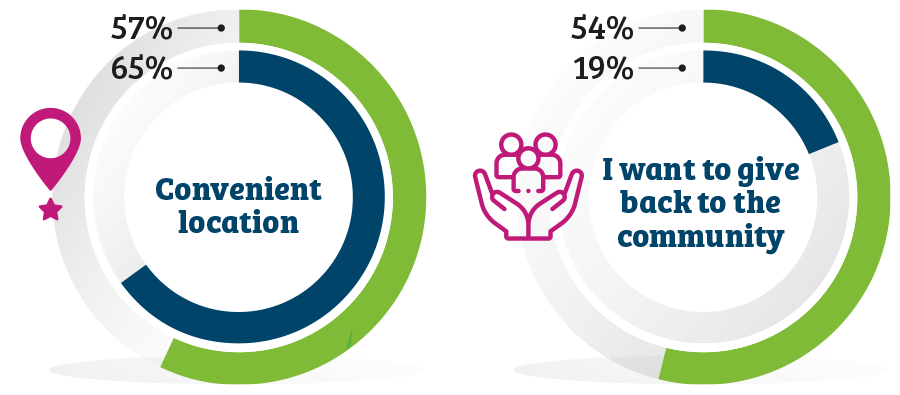We use Free School Meals (FSM) eligibility as an indicator of deprivation: schools with more than 30% of pupils eligible for FSM are deemed to have high levels of socio-economic deprivation within their student population. Free school meals data is not available in Ireland, so these comparisons apply only to our respondents from the UK.
Responses have been presented for mainstream state secondary schools which includes non-fee paying local authority, community, foundation, Education and Training Board schools (in Ireland), academy, grammar and selective schools.
![]()
When asked why they regard their school as being in challenging circumstances, some teachers said:
Very deprived area; having to teach multiple levels in same class due to budgetary restriction not allowing separate class for each level; current Scottish government and council policy of how behaviour is managed in schools and instruction not to exclude very disruptive or aggressive pupils causes major behaviour issues which are escalating and resulting in problems for rest of pupils.
Very deprived area. Incredibly low attendance of students. Low aspirations for many. Very challenging behaviour from a significant minority. Lack of parental expectations for high attendance, homework, revision, etc.
![]()
Thinking about where you currently work, why did you choose this school to work in?
I am passionate about the subject and helping students achieve their potential. I wanted a job that made me feel I can make a difference not just in my classroom.

What we are doing
Supporting teachers in areas of high socio-economic deprivation is a priority because we believe that everyone should have access to an excellent chemistry education. The survey insights and our additional research are helping us to address the specific needs of these teachers. We continue to review and modify the support we offer, developing new areas of support where they are needed.
Our Chemistry for All research revealed the barriers to participation in UK chemistry undergraduate study. This longitudinal study stretched over five years and was targeted at students from less advantaged backgrounds. The findings led us to set up a dedicated fund to help outreach providers modify their delivery approach. For example, we support outreach providers to build relationships with school leaders rather than rely on the enthusiasm of one or two engaged teaching staff.
We support external research, such as , which studies young people’s science and career aspirations.
Creating a more inclusive chemistry education for learners is a core focus of our policy work. All students – regardless of where they live, what school they go to, or their personal circumstances or characteristics – should have access to an excellent chemistry education. We communicate our messages in this area through our education policy positions and campaigns.
Some of the resources that we encourage teachers and technicians to use include:
- , which are available through our free magazine for teachers, Education in Chemistry
- to maximise the learning of all students
- teacher professional development like our . We offer priority places for schools in areas of high socio-economic deprivation.
- our programme connects teachers (prioritising those working in areas of high socio-economic deprivation) with ŷ��AV members who are experienced leaders in other sectors. It’s an invaluable resource for educators with departmental responsibilities.
Are you teaching in an area of high socio-economic deprivation?
Get involved in shaping our future support by registering your interest below
Education support
- Email:
- Send us an email
Explore the full data set behind the Science Teaching Survey 2023
![]() Download questions and data explainer
Download questions and data explainer
Data tables
You can download all data tables by using the form below. Your data will be used to help us measure engagement depth, not to send unsolicited email communications, and will be retained for 12 months.
Download data tables


